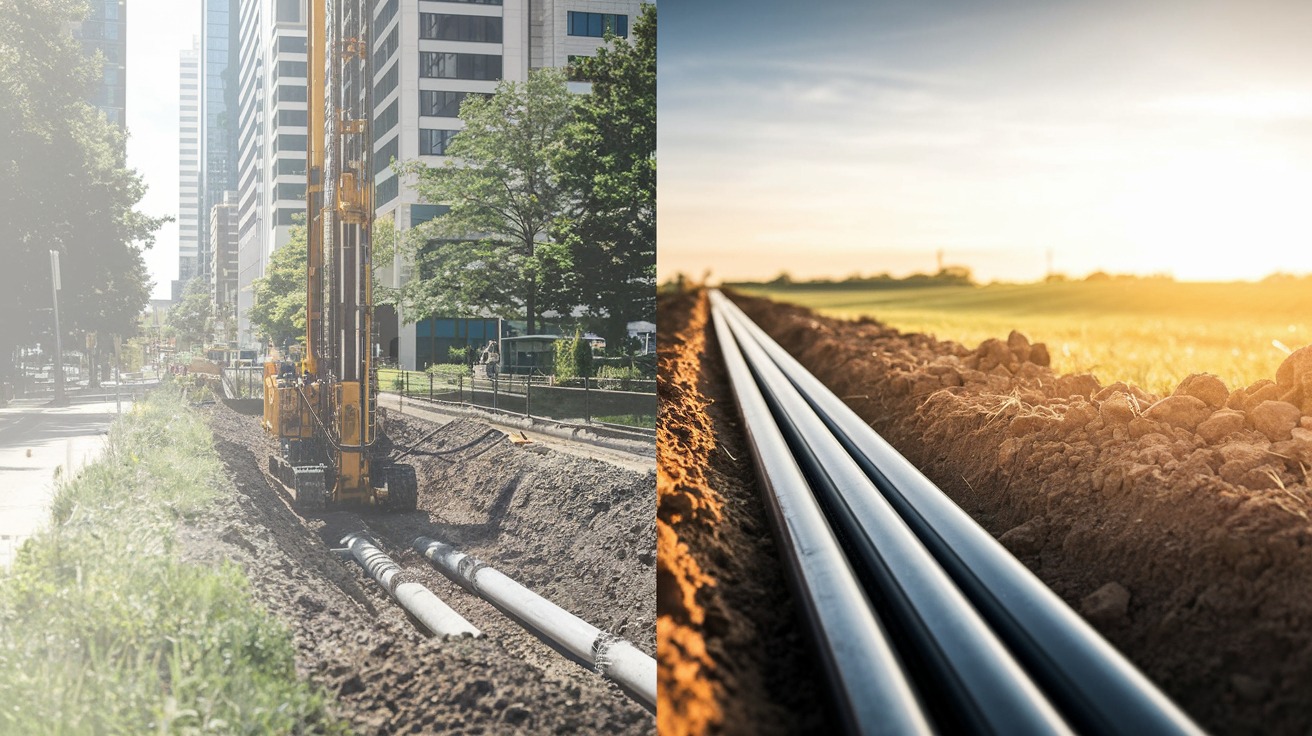5 Safety Innovations Changing Alberta's Pipeline Industry
Introduction
The pipeline industry in Alberta has undergone significant transformation in recent years, with safety innovations leading the charge toward more secure and efficient operations. As regulatory requirements tighten and public scrutiny increases, pipeline contractors are implementing revolutionary technologies that not only enhance worker safety but also improve project outcomes and environmental protection.
This article explores five cutting-edge safety innovations that are changing how pipeline construction and maintenance are approached across the province.
1. Advanced Leak Detection Systems
Real-Time Monitoring Capabilities
Modern leak detection systems now utilize fiber optic sensing technology that can detect temperature and acoustic changes along the entire length of a pipeline. These systems provide real-time alerts, allowing for immediate response before minor issues become major incidents.
Key Benefits:
- Detection sensitivity to leaks as small as 0.1% of flow
- Pinpoint accuracy within 1-3 meters of leak location
- Integration with automated shutdown protocols
- 24/7 monitoring capabilities with minimal false alarms
One Alberta contractor reported a 78% reduction in response time to potential leaks after implementing this technology on a recent project spanning 150km of new pipeline construction.
2. Autonomous Inspection Robots
Pipeline inspection is entering a new era with the introduction of autonomous robots designed to navigate through pipelines of various diameters. These sophisticated devices use multiple sensors to gather comprehensive data about pipeline conditions.
Beyond Traditional Inspection Methods
Unlike conventional inspection tools, these robots can:
- Navigate bends and obstacles without human intervention
- Collect high-definition visual data alongside structural integrity readings
- Operate in live pipelines without service interruption
- Reach sections previously inaccessible to traditional inspection methods
"The introduction of autonomous inspection robots has revolutionized our maintenance protocols," explains Sarah Chen, Lead Engineer at a major Alberta pipeline operator. "We're identifying potential issues months or even years before they would become detectable through conventional methods."
3. Enhanced Personal Protective Equipment (PPE)
The evolution of personal protective equipment has significantly improved worker safety in high-risk pipeline environments.
Smart PPE Integration
Today's pipeline workers benefit from:
- Gas-detection wearables that provide immediate alerts of hazardous atmospheres
- Connected hard hats with built-in communication systems and impact sensors
- Climate-controlled workwear for extreme Alberta weather conditions
- Exoskeleton supports that reduce physical strain during repetitive tasks
These advancements have contributed to a 45% reduction in workplace injuries across early-adopting pipeline contractors in Alberta since 2020.
4. Virtual Reality Training Simulations
Virtual reality has transformed how pipeline workers prepare for complex and potentially dangerous scenarios without exposure to actual risks.
Immersive Learning Environments
VR training programs now allow workers to:
- Experience realistic emergency response scenarios
- Practice complex valve operations and maintenance procedures
- Learn proper excavation techniques around existing infrastructure
- Undergo certification in specialized tasks in a controlled environment
"Our VR training program has decreased on-site training time by 60% while improving knowledge retention by over 75%," notes David Thompson, Safety Director at a leading Alberta pipeline construction firm. "Workers arrive on-site with practical experience, even if they've never physically performed the task before."
5. Drone-Based Monitoring and Surveying
Unmanned aerial vehicles (UAVs) have become indispensable tools in pipeline construction and monitoring across Alberta's diverse terrain.
Aerial Advantages
Modern pipeline drones offer:
- LiDAR mapping capabilities for precise route planning
- Thermal imaging to detect heat signatures indicating potential issues
- Automated flight paths for consistent monitoring of rights-of-way
- Quick deployment for emergency assessment in remote areas
Many Alberta companies report 80% time savings in preliminary surveys and a 65% cost reduction compared to traditional ground-based survey methods.
The Future of Pipeline Safety in Alberta
As these innovations continue to develop and integrate with each other, we can expect to see increasingly intelligent pipeline systems that can predict and prevent incidents before they occur. Machine learning algorithms are already being applied to the vast amounts of data collected by these technologies to identify patterns and potential risk factors.
Conclusion
The adoption of these safety innovations is reshaping Alberta's pipeline industry, creating safer working environments, reducing environmental risks, and improving operational efficiency. Companies that embrace these technologies are not only protecting their workers and assets but are also positioning themselves as leaders in a rapidly evolving industry.
For pipeline contractors and operators in Alberta, staying current with these safety advancements isn't just good business—it's becoming essential to remain competitive and compliant with increasingly stringent regulatory requirements.
Related Resources
- Alberta Energy Regulator Pipeline Safety Standards
- Canadian Energy Pipeline Association Best Practices
- Occupational Health and Safety Guidelines for Pipeline Construction
Want to learn more about implementing these safety innovations in your pipeline projects?
Contact UsRelated Posts

HDD vs Open Cut: When to Choose Each Method
A comprehensive comparison of horizontal directional drilling and traditional open cut trenching.
Read More
Alberta's New Pipeline Regulations: What Contractors Need to Know
Breaking down the latest regulatory changes affecting utility contractors across the province.
Read More
Case Study: Edmonton Commercial Site Development
How Trenchcor Utilities completed a complex urban utility installation with zero safety incidents.
Read MoreTrusted By
Our Partners
We're proud to work with leading energy companies and safety organizations across Alberta.

Joint Venture Partnership:
Proudly partnering with Urban Underground for efficient community development
One trench, multiple utilities – minimizing community disruption